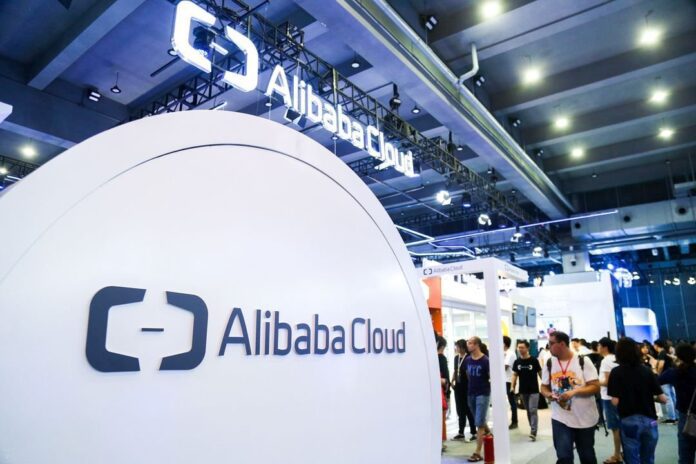Introduction
In a surprising turn of events, Alibaba has decided to abandon its plans to spin off its cloud computing arm, citing uncertainties created by recent US controls on chip exports to China. This decision, announced just hours after talks between Chinese President Xi Jinping and US President Joe Biden, underscores the complex dynamics in the relationship between the world’s two largest economies.
Alibaba’s Cloud Computing Pivot
Alibaba’s Cloud Intelligence Group, once slated for a separate listing, is now facing challenges that may materially and adversely affect its operations and profitability. The tightening US restrictions on chip exports to China have forced Alibaba to reconsider its strategy, leading to a significant drop in its US-listed shares.
The Unraveling Chip War
The escalating chip war between the United States and China has been a central factor in Alibaba’s strategic rethink. The year-long feud over China’s access to advanced semiconductors, materials, and equipment has created a turbulent environment for tech companies operating in both nations.
US Export Controls Tightened
Last month, the US government escalated its export controls, further limiting the range of semiconductors that American companies can sell to China. These measures, initially introduced a year ago, are part of a broader effort to curb China’s access to critical technologies.
Xi-Biden Talks and the “Technological Containment” Narrative
During the talks between Xi Jinping and Joe Biden, the Chinese President characterized the US restrictions as “technological containment.” In response, Biden emphasized that the United States would not provide technology to China that could be used against it by the Chinese military.
Impact on Alibaba’s Cloud Intelligence Group
Alibaba’s statement highlighted the potential material and adverse effects of the new US restrictions on its Cloud Intelligence Group. The ability to operate effectively, maintain profitability, and consider a separate listing for shareholders is now uncertain, leading to a significant market reaction with a nearly 10% drop in Alibaba’s US-listed shares.
Broader Business Implications
Beyond the direct impact on the Cloud Intelligence Group, Alibaba acknowledges that these restrictions could have ripple effects across its businesses by limiting the company’s ability to upgrade its technological capabilities.
The US-China Tech Tensions Landscape
The tensions between the United States and China in the technology sector have been building over the past year. The focus on advanced semiconductors, crucial for products ranging from smartphones to electric vehicles, has become a focal point in the geopolitical struggle.
US Restrictions and Technological Containment
The recent tightening of US export controls, framed by President Xi as “technological containment,” reflects the US government’s commitment to restrict the flow of advanced technologies to China. The move aims to safeguard American technological superiority and prevent the potential use of such technologies for military purposes by China.
China’s Response: Imposed Curbs and Export Restrictions
China, in response to the US measures, has imposed its own restrictions. In August, the country limited exports of gallium and germanium, essential elements for semiconductor production. Additionally, Beijing announced plans to restrict the export of graphite, a mineral vital for manufacturing batteries in electric vehicles.
The Xi-Biden Talks and Optimism
Despite the backdrop of technological tensions, the recent talks between Xi Jinping and Joe Biden have been characterized as constructive and productive. Both leaders expressed a willingness to engage in dialogue during periods of disagreement, fostering a sense of optimism in the often-tempestuous relationship between the two nations.
Xi’s Message to American Business Leaders
In a meeting with American business leaders, including Tim Cook of Apple and Elon Musk of Tesla, President Xi conveyed China’s willingness to be a “partner and friend.” He emphasized the importance of building bridges and fostering people-to-people exchanges, advocating against a zero-sum game mentality.
Foreign Investment Challenges in China
President Xi’s outreach to American CEOs comes at a time when China is experiencing a slump in foreign investment. This decline is compounded by a deepening property crisis and weak consumer spending, adding to the challenges facing the Chinese economy.
Alibaba’s Ongoing Overhaul
Amidst these geopolitical and economic challenges, Alibaba, founded by Jack Ma 25 years ago, is in the midst of a historic overhaul. The original plan aimed to create six separate units, each with its own CEO and board. However, recent developments have prompted a pause in plans to list its supermarket chain Freshippo.
Impact on Alibaba’s IPO Plans
The decision to abandon the spin-off of its cloud computing arm and the pause in listing Freshippo underscore the fluidity of the current business landscape. Alibaba is now reevaluating its strategy in response to external uncertainties, emphasizing the need to develop a sustainable growth model for its Cloud Intelligence Group.
Confirmation of Cainiao’s IPO
Despite the challenges, Alibaba remains committed to its plans for an initial public offering (IPO) of its logistics arm, Cainiao, in Hong Kong. The confirmation of this IPO signals Alibaba’s determination to navigate the evolving business environment.
Financial Overview: Alibaba’s Resilience
In the face of these challenges, Alibaba’s financials for the June-to-September quarter demonstrate resilience. Revenues climbed 9% year-on-year to 224.8 billion renminbi ($31 billion). Net profit, at 26.7 billion renminbi ($3.7 billion), marked a significant turnaround from a previous net loss, attributed to the increased value of the group’s equity investments.
Conclusion:
Alibaba’s decision to forgo the spin-off of its cloud computing arm reflects the profound impact of geopolitical tensions on business strategies. As the US and China navigate a complex relationship, tech companies like Alibaba must adapt to the evolving regulatory and trade environment. The financial resilience demonstrated by Alibaba in challenging times underscores the company’s ability to navigate uncertainties and underscores the importance of flexibility in today’s dynamic business landscape.










